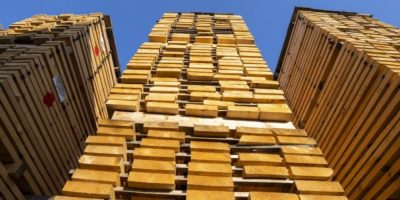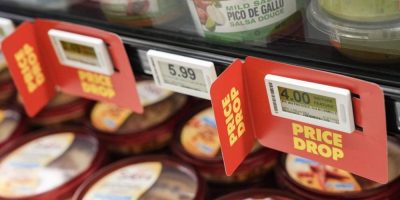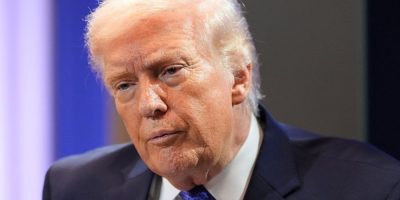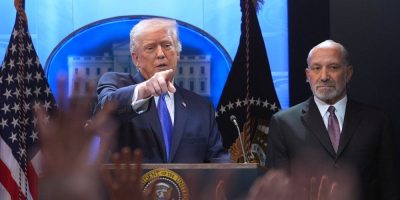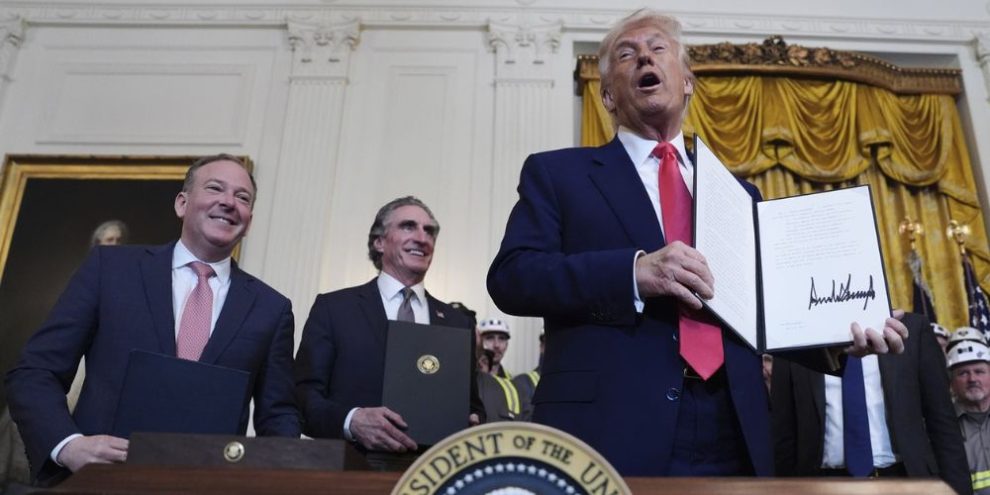
Updated April 9, 2025 @ 5:18pm
U.S. President Donald Trump partially reversed course Wednesday on his global trade war following days of market turmoil — but he's not offering any changes to the tariffs hitting Canada.
Trump immediately paused for 90 days the levies on nations slapped with the highest duties under his "reciprocal" tariff regime. A White House official later clarified that a 10 per cent baseline tariff will remain in place for all countries.
The president has held fast to his plan to rapidly realign global trade through a benchmark "reciprocal" tariff since his return to the White House in January — but his tariffs have spread chaos throughout global markets.
The 10 per cent baseline tariffs on all imports to the U.S. from most countries, and higher duties on dozens of nations, came into force just after midnight Wednesday. Those higher tariffs included a 20 per cent levy on imports from the European Union, a 25 per cent tariff on South Korea and a 32 per cent levy on Taiwan.
Trump also increased tariffs on Chinese goods to 104 per cent and Beijing responded with additional duties on U.S. imports — pushing its total tariffs on U.S. goods to 84 per cent.
Barrie's News Delivered To Your Inbox
By submitting this form, you are consenting to receive marketing emails from: Central Ontario Broadcasting, 431 Huronia Rd, Barrie, Ontario, CA, https://www.cobroadcasting.com. You can revoke your consent to receive emails at any time by using the SafeUnsubscribe® link, found at the bottom of every email. Emails are serviced by Constant Contact
Trump posted on social media that Americans should "BE COOL!" and "Everything is going to work out" only a few hours before changing course and pulling back some of the most devastating duties.
On social media, Trump said he made the decision after more than 75 countries called his administration "to negotiate a solution." Later at the White House, the president said he lowered the levies because "people were jumping a little bit out of line."
"They were getting yippy, you know," Trump said. "They were getting a little bit yippy, a little bit afraid.”
While some countries saw a reprieve, Trump posted that China had shown a "lack of respect" and announced he's increasing tariffs on Chinese imports to 125 per cent, effective immediately.
U.S. Treasury Secretary Scott Bessent spread his own confusion by telling reporters that Canada and Mexico were included in the 10 per cent universal levy. The White House official later stated that the tariffs on Canada remained unchanged.
In early March, Trump imposed — and then partially paused — 25 per cent across-the-board tariffs on Canada and Mexico, with a lower 10 per cent levy on energy and potash. Goods imported under the Canada-U.S.-Mexico Agreement on trade, known as CUSMA, do not face duties. Imports that fall outside the continental trade pact are hit with the 25 per cent tariff.
Tariffs on automobiles, steel and aluminum imports to the U.S. also remain in place.
Ottawa added to its retaliatory measures earlier Wednesday in response to the automobile duties by implementing similar tariffs on vehicles imported from the United States. Unlike the American duties, Canada's tariffs will not affect auto parts or Mexican vehicles and components.
On Capitol Hill, America's new top diplomat in Ottawa was confirmed by the U.S. Senate Wednesday at a fraught time in U.S.-Canada relations. Former Michigan congressman Pete Hoekstra said in a statement that "Canada is our most valuable trading partner, our largest source of foreign investment, and our largest source of energy imports."
"As Ambassador to Canada, I will work with the Canadian government to review and strengthen our strong trading partnership, secure our borders, confront the deadly threat of fentanyl to our citizens, and build our national security co-operation," Hoekstra said.
Trump has repeatedly said America doesn't need anything from Canada. Canadian officials have said Trump's tariffs undermine CUSMA and his goal is to crush Canada's economy in order to annex the country.
Damage to the relationship with Canada came up repeatedly as U.S. Trade Representative Jamieson Greer faced pushback from lawmakers on a congressional committee for a second day on Wednesday. Greer maintained his support for Trump's trade agenda as Republican and Democrats alike questioned the president's tariff rollout and the uncertain goals of his massive trade agenda.
Claudia Tenney, the Republican congresswoman from New York, said there's been a 23 per cent drop in Canadian visitors to her district's wineries and she's concerned about what's happening to the "historically strong relationship." Local industries also rely on steel and aluminum from Canada, she said.
Richard Neal, a Democratic congressman from Massachusetts, told the House Committee on Ways and Means on Wednesday that the trade war is "not only dumb, it’s unconstitutional."
He pointed to CUSMA, negotiated during the first Trump administration, and said it's up for mandatory review in 2026. Instead, Neal said, Trump has imposed tariffs on America's closest neighbours.
Republican Rep. David Schweikert asked whether Greer and his team "spend time analyzing the infrastructure realities we have to actually be able to produce these products."
Greer told hearings this week that there would be no exclusions or exemptions — but Trump has shifted course on that as well. The president told reporters at the White House that he would rely on instinct to decide whether any countries or industries should get tariff carve-outs going forward.
"You have to have flexibility," Trump said.
This report by The Canadian Press was first published April 9, 2025.
